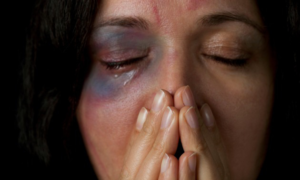October is Domestic Violence Awareness Month! The team at SuzyKnew! is all about raising awareness and advocating for this important issue. Too many people fail to understand the nuances and dynamics of an abusive relationship. In fact, many people don’t realize that domestic abuse is much more than just physical violence.
Domestic violence, or intimate partner violence (IPV), is defined as any abusive behavior as part of a systematic pattern of power and control perpetuated by one intimate partner against another. It can include physical assault & battery, rape/sexual assault, psychological violence, emotional abuse, verbal abuse and financial control/abuse.
In the U.S. alone, IPV is the leading cause of injury to women, ages 15-45, higher than car accidents, muggings and rapes, combined. A woman is brutalized every 9 seconds, and women between ages 18-34 are especially vulnerable.
Contrary to popular opinion, IPV doesn’t discriminate. It can happen to anyone, regardless of race, color, nationality, sexual orientation, gender, gender identification, physical ability, religion, socio-economic status, education, or geography. It happens in small towns, big cities, rural areas, and suburbia. It happens in affluent communities and poor neighborhoods. It happens in LBGTQ relationships and straight relationships.

It. Can. Happen. To. Anyone.
Could you or someone you know be in an abusive relationship? Here are a few things to look for if you’re wondering (in no particular order):
- You feel scared for yourself, your kids, or your pets most of the time.
- You feel guilt and shame about your relationship.
- You feel controlled financially. You have limited or no access to money. You’re forbidden to earn your own money. You don’t participate in any financial decisions.
- You feel controlled You’re isolated from friends & family; you may even isolate yourself out of fear or shame. You don’t do the things you used to enjoy.
- You’ve been coerced or forced to have sex when you didn’t want to (which is rape, by the way, even within marriage).
- Your partner demeans you and calls you names, making you feel like you can’t do anything right.
- Your partner is overly possessive of you, your time and your attention.
- Your partner threatens suicide if you talk about ending the relationship.
- You, your kids, your family or your pet(s) have been threatened.
- You, your kids, your family or your pet(s) have been threatened with a weapon.
- Your partner threatens to take your kids or pets away from you if you don’t comply with their demands or talk about leaving.
- Your partner physically attacks
- Your partner rarely takes responsibility for their behavior. If he/she gets in trouble at work, it’s someone else’s fault. Or, if he/she beats you, it’s your fault for whatever you “did” to make him/her upset.
If you or someone you know is in trouble, don’t hesitate to seek help from domestic violence professionals. Be careful, though. When attempting to help someone else, do NOT do it alone. You may be putting yourself and the person who’s being abused at risk. Work with professionals. In the U.S., you can call the Domestic Violence Hotline at 1-800-799-7233.
Outside the U.S., please use caution when searching online for help. Many IPV help sites can be exited quickly, without leaving a digital trace. Still, always be diligent about clearing your search history if you can’t use a safer device than your own. Domesticshelters.org may also be able to help.
Stay safe, and do your part to End Domestic Violence Now

